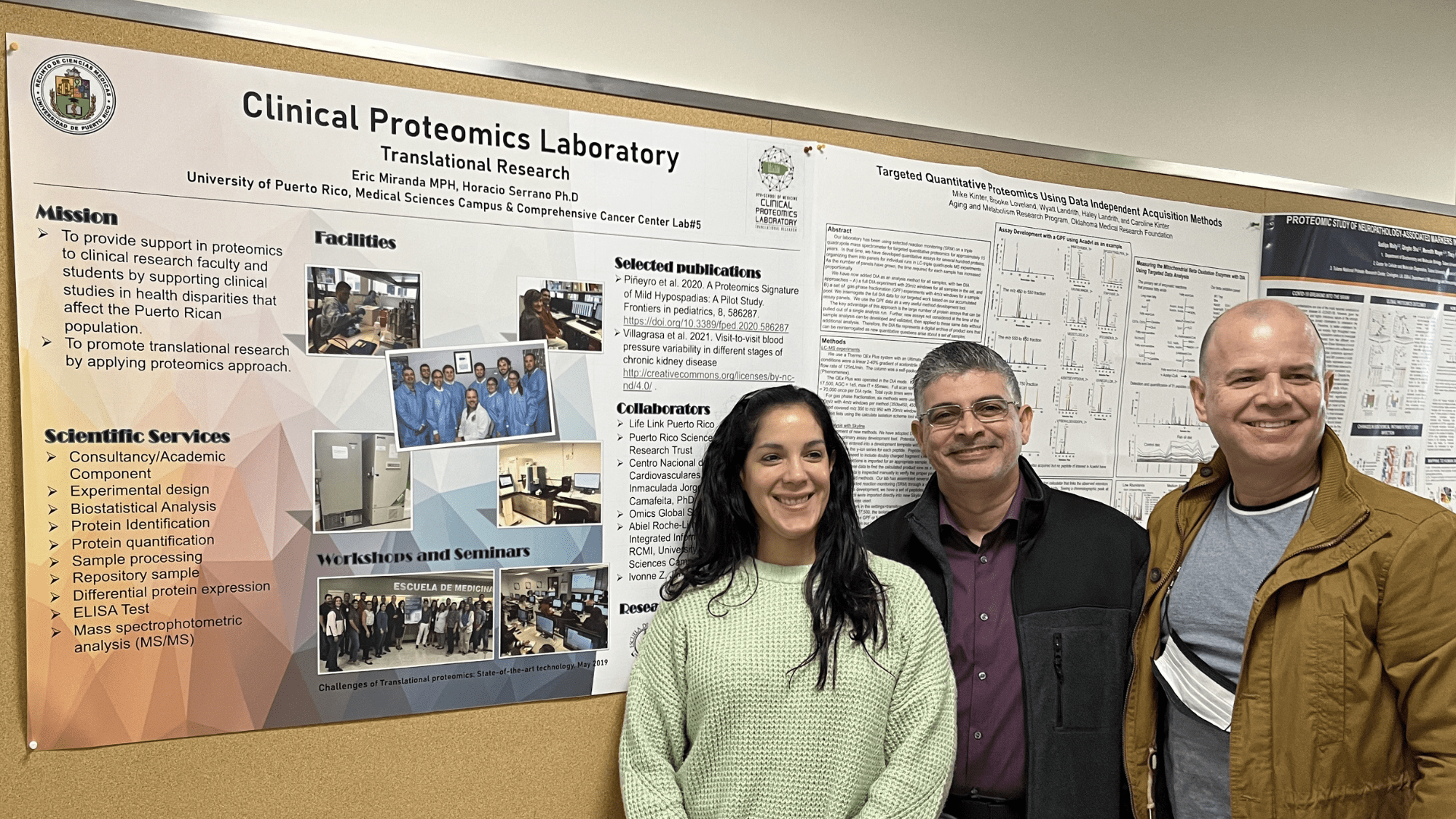UAMS Winthrop P. Rockefeller Cancer Institute Hosts National Proteomics Symposium
| The University of Arkansas for Medical Sciences’ (UAMS) Winthrop P. Rockefeller Cancer Institute welcomed proteomics directors and staff from across the country Feb. 8 and 9 for a continuing education symposium.
Sponsored by the IDeA National Resource for Quantitative Proteomics located within the Cancer Institute, the symposium facilitated two days of collaboration and best practice sharing among proteomics experts from 11 different states.
Proteomics is the high throughput study of the abundance and activity of proteins. Most diseases, including cancer, are manifested at the level of protein activity.
The IDeA National Resource for Quantitative Proteomics at UAMS is the only one of its kind to be designated as a national resource by the National Institutes of Health. Alan Tackett, Ph.D., serves as director.
“We were thrilled to convene proteomics experts from across the country at our Cancer Institute, as our group serves as an NIH hub for disseminating training and education in this discipline of biomedical research,” said Tackett, who also serves as deputy director of the Winthrop P. Rockefeller Cancer Institute and is the Scharlau Family Endowed Chair in Cancer Research at UAMS.
The symposium included poster sessions and a keynote address by John Koomen, Ph.D., scientific director of the Proteomics and Metabolomics Core at Moffitt Cancer Center. His talk was titled “Evolving a Proteomics and Metabolomics Core to Support Cancer Research.”
Breakout sessions covered topics such as quality control, sample preparation and workflows, bioinformatics and administration.
“Prior to this symposium, very little was known about other proteomic cores in IDeA states, including staff and capabilities,” said David Quilici, Ph,D., director of the Nevada Proteomics Center who has been attending the symposium for seven years.
The IDeA program works to build research capacity in states with historically lower levels of NIH funding. The program is open to 23 states, including Arkansas, and Puerto Rico.
“The UAMS staff and attending proteomic directors have provided insights which have allowed our core to enhance our services to our researchers,” said Quilici. “I have established relationships and contacts across the country ensuring that researchers are able to achieve their desired proteomic goals, whether it be by our current enhanced services or by directing them to a core that can address their needs.”
Directors from St. Jude Children’s Research Hospital, LSU Health, Tulane, the University of Rhode Island and Puerto Rico attended the event.
Proteomics has identified proteins that offer promise as diagnostic or prognostic markers, or as therapeutic targets in a range of illnesses, including cancer. The IDeA National Resource for Quantitative Proteomics at the Winthrop P. Rockefeller Cancer Institute provides these resources to not only investigators at UAMS, but also has enabled research for hundreds of investigators covering every state in the United States.
